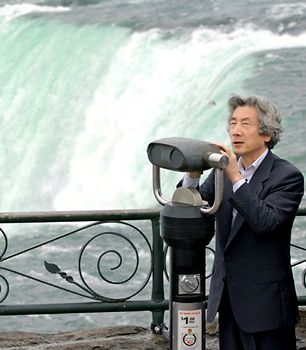
In the West, few social problems are thought of as more typically Japanese than the random molester, known aschikan . He may lurk in a parking garage or dark alley, as if some sort of fungus, but his most common natural habitat is the train. During rush hour, when commuters of all ages, professions, genders are packed together like sardines-to the point that certain stations in Tokyo famously (used to?) have platform workers help people squeeze inside before the doors shut-and the hapless victim has no escape from the perverts embrace. Whether he merely breaths too close and too damply to her neck, rubs his pelvis up against her side, slides his hands over her breasts, crotch or buttocks, slips them into her clothes, or actually opens his own clothing to perform that most inappropriate of public acts, the response is always the same-nothing. The woman may be disgusted or terrified, fellow passengers may see, feel, or hear what is going on, but regardless nobody stops it, nobody calls the police, and of course nobody is ever punished.
Of course, this is all a product of Japan’s unique culture, superficially sexually repressed and yet if you scratch the surface ever so perverted. In other, normal, nations perhaps these chikan would be well-adjusted men, allowed to slake their sexual appetites with their wives or girlfriends, instead of being forced to work like robots for a family that doesn’t love them, virtually castrated by society. With no accepted outlet, he turns to increasingly depraved pornography, which gradually programs his pyche to associate his libidinous urges not just with the image of a pretty girl but outlandish scenarios until merely watching is no longer enough, and without any good Protestant values to reign him in, he feels compelled to take to the streets and do something about his fantasies, heedless of the victim’s rights or the consequences.
At least that is how the common stereotype goes. But really it’s all absolute rubbish.
The New York Times has an article on the prevalence of illegal sexual groping and exposure on the NYC subway system.
This week, as the Police Department announced the arrest of 13 men charged with groping and flashing women in the subways, women around the city nodded. Yes, they said, this had happened to them. Yesterday. Last month. Last fall. Twenty years ago.
“Every girl I know has at least one story,” said Barbara Vencebi, 23, a studio photographer standing outside the No. 6 train station at 116th Street in East Harlem yesterday.
It is a crime abetted by the peculiar landscape of the underworld that is the subway system, by the anonymity of a crowded car where everybody is avoiding eye contact. And by the opportunity for a quick escape at the next stop, to disappear behind a pillar, into a tunnel, up an escalator.
An impromptu survey of riders during the morning rush yesterday found that, for many women who have experienced it, the worst part of the crime is the sense of helplessness. What is the right way to react to a humiliating, but not life-threatening, situation? Should you announce to an entire car of strangers that you have just been violated?
Most of the time, the women said, they seethe inwardly but say nothing.
Certainly Japan has its share of sex crimes, does it really have MORE than its share? I heard so many times over the years about the prevalence of chikan and other sexual assault in Japan, but is it really any more common than other countries, or is the belief in its exceptional commonality just another turn in the decades old racial and cultural stereotypes seen in American media since before World Was II?
As an aside, for an interesting take on chikan, check out the novella J (cover image above) by the nobel prize winning Oe Kenzaburo, in which the Jay Gatsby-ish title character apprentices himself to an elderly subway chikan


